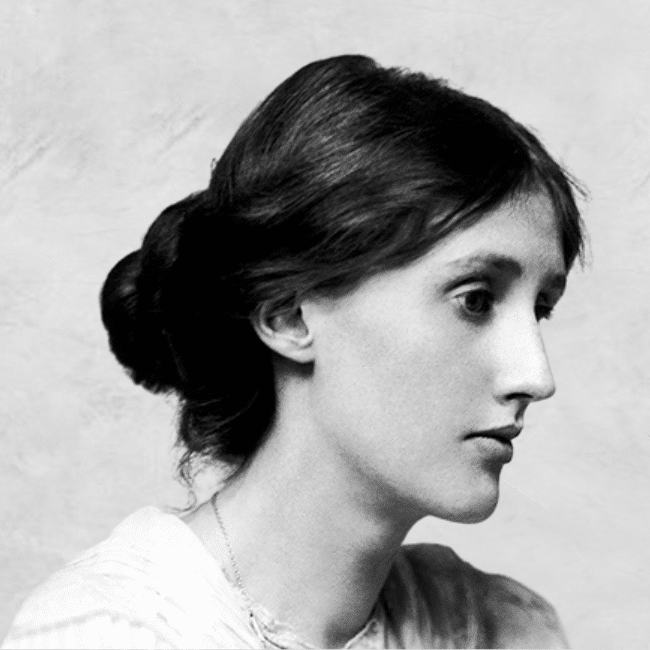How to put a price on a life - explaining Quality-Adjusted Life Years (QALY)

How to put a price on a life – explaining Quality-Adjusted Life Years (QALY)
Opinion + AnalysisHealth + WellbeingRelationshipsScience + Technology
BY Matthew Beard The Ethics Centre 1 MAY 2020
In all the time I’ve spent teaching ethics – from trolley problems to discussions of civilian casualties at war to the ethics of firefighting – there have been a few consistent trends in what matters to people.
One of the most common is that in life-and-death situations, details matter. People want to know exactly who might die or be rescued: how old are they? Are they healthy? Do they have children? What have they done with their life?
What they’re doing, whether they know it or not, is exploring what factors could help decide which life it would be most reasonable, or most ethical to save, relative to the other lives on the table.
Moreover, it’s not only in times of war or random thought experiments that these questions arise. Every decision about where to allocate health resources is likely to have life-or-death consequences. Allocate more funding to women’s shelters to address domestic violence and you’ll save lives. However, how many lives would you save if that same money were used to fund more hospital beds, or was invested into mental health support in rural communities?
One widely-used method for ensuring health resources are allocated as efficiently as possible is to use QALY’s – quality-adjusted life years. QALY is an approach that was developed in the 1970’s to more precisely, consistently and objectively determine the effectiveness and efficiency of different health measures.
Here’s how it works: imagine a year of life enjoyed at full health. It gets assigned a score of 1. Every year of life lived at less than full health gets assigned a lower score. The worse off the person’s health, the lower the score.
For example, take someone who has to undergo chemotherapy for five years. They have full mobility, but have some difficulty with usual activities, severe pain and mild mental health challenges. They might be given a QALY score of 0.55.
Once we’ve gotten a QALY score, we then need to work out how much the healthcare costs. Then, it’s simple maths: multiply the cost by the QALY score and you get an idea of how much each QALY is costing you. Then you can compare the cost effectiveness of different health programs.
QALY’s are usually seen as a utilitarian method of allocating health resources – it’s about maximising the utility of the healthcare system as a whole. However, like most utilitarian approaches, what works best overall doesn’t work best in individual cases. And that’s where criticisms of QALY arise.
Let’s say two patients come in with the same condition – COVID-19. One of them is young, non-disabled and has no other health conditions affecting their quality of life. The other person is elderly, has a range of other health conditions and is in the early stages of dementia. Both patients have the same condition. However, according to the QALY approach, they are not necessarily entitled to the same level of care – for example, a ventilator if resources are scarce. The cost per QALY for the younger patient is far lower than for the elderly patient.
For this reason, QALY’s are sometimes seen as inherently unjust. They fail to provide all people with equal access to healthcare treatment. Moreover, as philosopher and medical doctor Bryan Mukandi argues, if two patients with the same condition are expected to have different health outcomes, there’s a chance that’s the result of historical injustices. Say, a person with type-2 diabetes receives a lower QALY score as a result, but type-2 diabetes is correlated with lower income, the scoring system might serve to entrench existing advantage and disadvantage.
Like any algorithmic approach to decision-making, QALYs present as neutral, mathematic and scientific. That’s why it’s important to remember, as Cathy O’Neil says in Weapons of Math Destruction, that algorithms are “opinions written in code.”
Embedded within QALY’s method are a range of assumption about what ‘full health’ is and what it is not. For instance, a variation on the QALY methodology call DALY – disability-adjusted life years – “explicitly presupposes that the lives of disabled people have less value than those of people without disabilities.”
An alternative to the QALY approach is to adopt what is known simply as a ‘needs-based’ approach. It’s sometimes described as a ‘first come, first served’ approach. It prioritises the ideal of healthcare justice above health efficiency – everyone deserves equal access to healthcare, so if you need treatment, you get treatment.
This means, to go back to our elderly and young patients with COVID-19, that whoever arrives at the hospital first and has a clinical need of a ventilator will get one. QALY advocates will argue that in times of scarcity, this is an inefficient approach that may border on immoral. After all, shouldn’t the younger person be given the same chance at life as the elderly person?
However, there is something radical underneath the needs-based approach. QALY’s starting point is that there are limited health resources, and therefore some people will have to miss out. A needs-based approach allows us to do something more radical: to demand that our healthcare is equipped, as much as possible, to respond to the demand. Rather than doing the best with what we have, we make sure we have what is necessary to do the best job.
You can contact The Ethics Centre about any of the issues discussed in this article. We offer free counselling for individuals via Ethi-call; professional fee-for-service consulting, leadership and development services; and as a non-profit charity we rely heavily on donations to continue our work, which can be made via our website. Thank you.
Ethics in your inbox.
Get the latest inspiration, intelligence, events & more.
By signing up you agree to our privacy policy
You might be interested in…
Explainer
Relationships
Ethics Explainer: Begging the question
Opinion + Analysis
Business + Leadership, Relationships
Employee activism is forcing business to adapt quickly
Opinion + Analysis
Relationships
The philosophy of Virginia Woolf
Opinion + Analysis
Relationships
Only love deserves loyalty, not countries or ideologies
BY Matthew Beard
Matt is a moral philosopher with a background in applied and military ethics. In 2016, Matt won the Australasian Association of Philosophy prize for media engagement. Formerly a fellow at The Ethics Centre, Matt is currently host on ABC’s Short & Curly podcast and the Vincent Fairfax Fellowship Program Director.
BY The Ethics Centre
The Ethics Centre is a not-for-profit organisation developing innovative programs, services and experiences, designed to bring ethics to the centre of professional and personal life.
The value of a human life

The value of a human life
Opinion + AnalysisHealth + WellbeingPolitics + Human RightsRelationshipsScience + Technology
BY Simon Longstaff The Ethics Centre 1 MAY 2020
One of the most enduring points of tension during the COVID-19 pandemic has concerned whether the national ‘lockdown’ has done more harm than good.
This issue was squarely on the agenda during a recent edition of ABC TV’s Q+A. The most significant point of contention arose out of comments made by UNSW economist, Associate Professor Gigi Foster. Much of the public response was critical of Dr. Foster’s position – in part because people mistakenly concluded she was arguing that ‘economics’ should trump ‘compassion’.
That is not what Gigi Foster was arguing. Instead, she was trying to draw attention to the fact that the ‘lockdown’ was at risk of causing as much harm to people (including being a threat to their lives) as was the disease, COVID-19, itself.
In making her case, Dr. Foster invoked the idea of Quality Adjusted Life Years (QALYs). As she pointed out, this concept has been employed by health economists for many decades – most often in trying to decide what is the most efficient and effective allocation of limited funds for healthcare. In essence, the perceived benefit of a QALY is that it allows options to be assessed on a comparable basis – as all human life is made measurable against a common scale.
In essence, the perceived benefit of a QALY is that it allows options to be assessed on a comparable basis – as all human life is made measurable against a common scale.
So, Gigi Foster was not lacking in compassion. Rather, I think she wanted to promote a debate based on the rational assessment of options based on calculation, rather than evaluation. In doing so, she drew attention to the costs (including significant mental health burdens) being borne by sections of the community who are less visible than the aged or infirm (those at highest risk of dying if infected by this coronavirus).
I would argue that there are two major problems with Gigi Foster’s argument. First, I think it is based on an understandable – but questionable – assumption that her way of thinking about such problems is either the only or the best approach. Second, I think that she has failed to spot a basic asymmetry in the two options she was wanting to weigh in the balance. I will outline both objections below.
In invoking the idea of QALYs, Foster’s argument begins with the proposition that, for the purpose of making policy decisions, human lives can be stripped of their individuality and instead, be defined in terms of standard units. In turn, this allows those units to be the objects of calculation. Although Gigi Foster did not explicitly say so, I am fairly certain that she starts from a position that ethical questions should be decided according to outcomes and that the best (most ethical) outcome is that which produces the greatest good (QALYs) for the greatest number.
Many people will agree with this approach – which is a limited example of the kind of Utilitarianism promoted by Bentham, the Mills, Peter Singer, etc. However, there will have been large sections of the Q+A audience who think this approach to be deeply unethical – on a number of levels. First, they would reject the idea that their aged or frail mother, father, etc. be treated as an expression of an undifferentiated unit of life. Second, they would have been unnerved by the idea that any human being should be reduced to a unit of calculation.
…they would have been unnerved by the idea that any human being should be reduced to a unit of calculation.
To do so, they might think, is to violate the ethical precept that every human being possesses an intrinsic dignity. Gigi Foster’s argument sits squarely in a tradition of thinking (calculative rationality) that stems from developments in philosophy in the late 16th and 17th Centuries. It is a form of thinking that is firmly attached to Enlightenment attempts to make sense of existence through the lens of reason – and which sought to end uncertainty through the understanding and control of all variables. It is this tendency that can be found echoing in terms like ‘human resources’.
Although few might express a concern about this in explicit terms, there is a growing rejection of the core idea – especially as its underlying logic is so closely linked to the development of machines (and other systems) that people fear will subordinate rather than serve humanity. This is an issue that Dr Matthew Beard and I have addressed in the broader arena of technological design in our publication, Ethical By Design: Principles for Good Technology.
The second problem with Dr. Foster’s position is that it failed to recognise a fundamental asymmetry between the risks, to life, posed by COVID-19 and the risks posed by the ‘lockdown’. In the case of the former: there is no cure, there is no vaccine, we do not even know if there is lasting immunity for those who survive infection.
We do not yet know why the disease kills more men than women, we do not know its rate of mutation – or its capacity to jump species, etc. In other words, there is only one way to preserve life and to prevent the health system from being overwhelmed by cases of infection leading to otherwise avoidable deaths – and that is to ‘lockdown’.
…there is only one way to preserve life and to prevent the health system from being overwhelmed by cases of infection leading to otherwise avoidable deaths – and that is to ‘lockdown’.
On the other hand, we have available to us a significant number of options for preventing or minimising the harms caused by the lockdown. For example, in advance of implementing the ‘lockdown’, governments could have anticipated the increased risks to mental health leading to a massive investment in its prevention and treatment.
Governments have the policy tools to ensure that there is intergenerational equity and that the burdens of the ‘lockdown’ do not fall disproportionately on the young while the benefits were enjoyed disproportionately by the elderly.
Governments could have ensured that every person in Australia received basic income support – if only in recognition of the fact that every person in Australia has had to play a role in bringing the disease under control. Is it just that all should bear the burden and only some receive relief – even when their needs are as great as others?
Whether or not governments will take up the options that address these issues is, of course, a different question. The point here is that the options are available – in a way that other options for controlling COVID-19 are not. That is the fundamental asymmetry mentioned above.
I think that Gigi Foster was correct to draw attention to the potential harm to life, etc. caused by the ‘lockdown’. However, she was mistaken not to explore the many options that could be taken up to prevent the harm she and many others foresee. Instead, she went straight to her argument about QALYs and allowed the impression to form that the old and the frail might be ‘sacrificed’ for the greater good.
You can contact The Ethics Centre about any of the issues discussed in this article. We offer free counselling for individuals via Ethi-call; professional fee-for-service consulting, leadership and development services; and as a non-profit charity we rely heavily on donations to continue our work, which can be made via our website. Thank you.
Ethics in your inbox.
Get the latest inspiration, intelligence, events & more.
By signing up you agree to our privacy policy
You might be interested in…
Opinion + Analysis
Climate + Environment, Politics + Human Rights
Increase or reduce immigration? Recommended reads
Opinion + Analysis
Science + Technology
Bladerunner, Westworld and sexbot suffering
Opinion + Analysis
Climate + Environment, Relationships
“Animal rights should trump human interests” – what’s the debate?
Opinion + Analysis
Business + Leadership, Relationships
Unconscious bias: we’re blind to our own prejudice
BY Simon Longstaff
After studying law in Sydney and teaching in Tasmania, Simon pursued postgraduate studies in philosophy as a Member of Magdalene College, Cambridge. In 1991, Simon commenced his work as the first Executive Director of The Ethics Centre. In 2013, he was made an officer of the Order of Australia (AO) for “distinguished service to the community through the promotion of ethical standards in governance and business, to improving corporate responsibility, and to philosophy.”
BY The Ethics Centre
The Ethics Centre is a not-for-profit organisation developing innovative programs, services and experiences, designed to bring ethics to the centre of professional and personal life.
FODI launches free interactive digital series

FODI launches free interactive digital series
Opinion + AnalysisRelationshipsSociety + Culture
BY The Ethics Centre 1 MAY 2020
FODI Digital, announced today, is an exciting series of free, online conversations to be live-streamed on May 9 and 10.
The line-up will feature a selection of the international and Australian speakers originally slated for the live festival that was cancelled, by government order, as the COVID-19 lockdown came into effect last month.
“The theme for 2020’s live festival was Dangerous Realities and we seem to well and truly have encountered one. Critical thinking is essential, especially as we isolate further from our communities, families and global neighbours.” said Festival Director, Danielle Harvey.
Executive Director of The Ethics Centre and Co-Founder of FODI Simon Longstaff says FODI digital is a timely invitation to think critically.
“We may submit to a lockdown of our bodies, but never our minds. If ever there was a time to test the boundaries of our thinking … it is today!”
The series of online conversations takes inspiration from the original FODI 2020 theme of ‘Dangerous Realities’, with online sessions being streamed via the festival website. The series will interrogate the reality of the current pandemic and its wider implications for our world and society.
Audiences can contribute questions live while the discussions take place.
For Festival Director Danielle Harvey, there’s never been a more important time for these critical conversations. “Decisions are being made at every level that will shape how we live our lives both now and in the future.
“While we can’t present the program in the way originally planned, these digital conversations will address topics that really need to be put under the microscope. COVID-19 will hopefully end at some point, and understanding what kind of world we will then be entering is essential.”
Sessions include:
- The Truth About China – Former Prime Minister Kevin Rudd is joined by journalists Peter Hartcher and Vicky Xiuzhong Xu, with Human Rights Watch researcher Yaqiu Wang, and strategist Jason Yat-Sen Li, in a wide-ranging discussion about China;
- The Future Is History – Russian-American journalist, high-profile LGBTQI activist and outspoken critic of Vladimir Putin and Donald Trump, Masha Gessen, shares her thoughts on Russia and the coming US elections;
- Snap Back To Reality – Philosopher Simon Longstaff leads a discussion with social researcher Rebecca Huntley, political journalist Stan Grant, and fellow philosopher Tim Soutphommasane, on the social shifts, policy and economic consequences that await us in a post-COVID-19 world;
- States of Surveillance – Futurist Mark Pesce, 3A Institute data expert Ellen Broad, and founder of Old Ways, New Angie Abdilla discuss the issue of digital surveillance for virus tracking and the potential threat posed by the ‘normalisation’ of government surveillance;
- Misinformation Is Infectious – First Draft’s Claire Wardle, tech journalist Ariel Bogle discuss COVID-19-related conspiracy theories and what they tell us about technology’s role in the spread of damaging misinformation;
- Stolen Inheritance – Australian youth leaders, Daisy Jeffrey, Audrey Mason-Hyde and Dylan Storer discuss their concerns for the world they will inherit: a world of debt, educational disadvantage, diminished job opportunities, climate catastrophe and … future pandemics;
- The Ethics of the Pandemic – Philosophers Matt Beard, Eleanor Gordon-Smith and Bryan Mukandi take a step back from the day-to-day dilemmas of the pandemic to try to understand what’s really going on, the lessons we learn and the hidden costs of the choices we make;
- Political Correct-Mess – Conservative Australian commentator Kevin Donnelly, journalist Chris Kenny, and journalist Osman Faruqi join journalist Sarah Dingle to dissect political correctness and ask, “Has it gone too far?”;
- Ageing is a Disease – Biologist David Sinclair talks about cracking and reversing the ageing process, which may help the elderly in their fight against a range of diseases and viruses.
The event will live stream straight from The Festival of Dangerous Ideas website across May 9-10. Visit www.festivalofdangerousideas.com to view the program.
You can contact The Ethics Centre about any of the issues discussed in this article. We offer free counselling for individuals via Ethi-call; professional fee-for-service consulting, leadership and development services; and as a non-profit charity we rely heavily on donations to continue our work, which can be made via our website. Thank you.
Ethics in your inbox.
Get the latest inspiration, intelligence, events & more.
By signing up you agree to our privacy policy
You might be interested in…
Opinion + Analysis
Relationships, Society + Culture
What Harry Potter teaches you about ethics
Big thinker
Relationships
Big Thinker: Steven Pinker
Explainer, READ
Society + Culture
Ethics Explainer: Cancel Culture
Opinion + Analysis
Relationships















